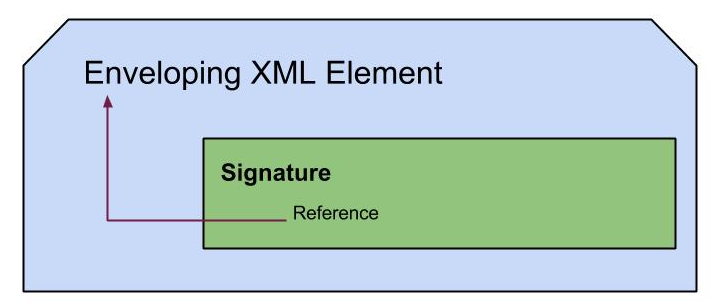Writing XACML 3.0 policies, Diverse Rules Per Operation - 2
This is a continuation from my previous post 'Working with XACML 3.0 policies for fine-grained authorization -1'. Here I will share a sample XACML 3 policy which defines two distinct rules to act over two distinct resources, followed by few sample requests to understand it's behaviour.
Let's imagine a requirement like as follows.
- The operation getCustomers in the service "http://localhost:8280/services/Customers" should only be accessed by users belonging to the admin_customers group.
- The operation getEmployees in the service "http://localhost:8280/services/Customers" should only be accessed by users belonging to the admin_emps group.
- Requests to any other service or operation should fail.
I have wrote following policy to satisfy this. It's bit longer than the previous policy, but same pattern applies.
<Policy xmlns="urn:oasis:names:tc:xacml:3.0:core:schema:wd-17" PolicyId="sample" RuleCombiningAlgId="urn:oasis:names:tc:xacml:1.0:rule-combining-algorithm:first-applicable" Version="1.0"> <Description>sample policy</Description> <Target></Target> <Rule Effect="Permit" RuleId="primary-group-customer-rule"> <Target> <AnyOf> <AllOf> <Match MatchId="urn:oasis:names:tc:xacml:1.0:function:string-regexp-match"> <AttributeValue DataType="http://www.w3.org/2001/XMLSchema#string">http://localhost:8280/services/Customers/getCustomers</AttributeValue> <AttributeDesignator AttributeId="urn:oasis:names:tc:xacml:1.0:resource:resource-id" Category="urn:oasis:names:tc:xacml:3.0:attribute-category:resource" DataType="http://www.w3.org/2001/XMLSchema#string" MustBePresent="true"></AttributeDesignator> </Match> <Match MatchId="urn:oasis:names:tc:xacml:1.0:function:string-equal"> <AttributeValue DataType="http://www.w3.org/2001/XMLSchema#string">read</AttributeValue> <AttributeDesignator AttributeId="urn:oasis:names:tc:xacml:1.0:action:action-id" Category="urn:oasis:names:tc:xacml:3.0:attribute-category:action" DataType="http://www.w3.org/2001/XMLSchema#string" MustBePresent="true"></AttributeDesignator> </Match> </AllOf> </AnyOf> </Target> <Condition> <Apply FunctionId="urn:oasis:names:tc:xacml:1.0:function:string-equal"> <Apply FunctionId="urn:oasis:names:tc:xacml:1.0:function:string-one-and-only"> <AttributeDesignator AttributeId="group" Category="urn:oasis:names:tc:xacml:3.0:example-group" DataType="http://www.w3.org/2001/XMLSchema#string" MustBePresent="true"></AttributeDesignator> </Apply> <AttributeValue DataType="http://www.w3.org/2001/XMLSchema#string">admin_customers</AttributeValue> </Apply> </Condition> </Rule> <Rule Effect="Permit" RuleId="primary-group-emps-rule"> <Target> <AnyOf> <AllOf> <Match MatchId="urn:oasis:names:tc:xacml:1.0:function:string-regexp-match"> <AttributeValue DataType="http://www.w3.org/2001/XMLSchema#string">http://localhost:8280/services/Customers/getEmployee</AttributeValue> <AttributeDesignator AttributeId="urn:oasis:names:tc:xacml:1.0:resource:resource-id" Category="urn:oasis:names:tc:xacml:3.0:attribute-category:resource" DataType="http://www.w3.org/2001/XMLSchema#string" MustBePresent="true"></AttributeDesignator> </Match> <Match MatchId="urn:oasis:names:tc:xacml:1.0:function:string-equal"> <AttributeValue DataType="http://www.w3.org/2001/XMLSchema#string">read</AttributeValue> <AttributeDesignator AttributeId="urn:oasis:names:tc:xacml:1.0:action:action-id" Category="urn:oasis:names:tc:xacml:3.0:attribute-category:action" DataType="http://www.w3.org/2001/XMLSchema#string" MustBePresent="true"></AttributeDesignator> </Match> </AllOf> </AnyOf> </Target> <Condition> <Apply FunctionId="urn:oasis:names:tc:xacml:1.0:function:string-equal"> <Apply FunctionId="urn:oasis:names:tc:xacml:1.0:function:string-one-and-only"> <AttributeDesignator AttributeId="group" Category="urn:oasis:names:tc:xacml:3.0:example-group" DataType="http://www.w3.org/2001/XMLSchema#string" MustBePresent="true"></AttributeDesignator> </Apply> <AttributeValue DataType="http://www.w3.org/2001/XMLSchema#string">admin_emps</AttributeValue> </Apply> </Condition> </Rule> <Rule Effect="Deny" RuleId="deny-rule"></Rule> </Policy>
As we can notice this has 3 'Rule' elements where two of them define what needs to be permitted and the other to deny all other requests, satisfying each requirement we defined in the beginning in the order. Let's check this with some requests.
- Admin of admin_customers group tries to access operation 'http://localhost:8280/services/Customers/getCustomers'. Response: Permit
<Request xmlns="urn:oasis:names:tc:xacml:3.0:core:schema:wd-17" CombinedDecision="false" ReturnPolicyIdList="false"> <Attributes Category="urn:oasis:names:tc:xacml:3.0:attribute-category:action"> <Attribute AttributeId="urn:oasis:names:tc:xacml:1.0:action:action-id" IncludeInResult="false"> <AttributeValue DataType="http://www.w3.org/2001/XMLSchema#string">read</AttributeValue> </Attribute> </Attributes> <Attributes Category="urn:oasis:names:tc:xacml:1.0:subject-category:access-subject"> <Attribute AttributeId="urn:oasis:names:tc:xacml:1.0:subject:subject-id" IncludeInResult="false"> <AttributeValue DataType="http://www.w3.org/2001/XMLSchema#string">admin</AttributeValue> </Attribute> </Attributes> <Attributes Category="urn:oasis:names:tc:xacml:3.0:example-group"> <Attribute AttributeId="group" IncludeInResult="false"> <AttributeValue DataType="http://www.w3.org/2001/XMLSchema#string">admin_customers</AttributeValue> </Attribute> </Attributes> <Attributes Category="urn:oasis:names:tc:xacml:3.0:attribute-category:resource"> <Attribute AttributeId="urn:oasis:names:tc:xacml:1.0:resource:resource-id" IncludeInResult="false"> <AttributeValue DataType="http://www.w3.org/2001/XMLSchema#string">http://localhost:8280/services/Customers/getCustomers</AttributeValue> </Attribute> </Attributes> </Request>
- Admin of admin_emps group tries to access operation 'http://localhost:8280/services/Customers/getCustomers'. Response:Deny
<Request xmlns="urn:oasis:names:tc:xacml:3.0:core:schema:wd-17" CombinedDecision="false" ReturnPolicyIdList="false"> <Attributes Category="urn:oasis:names:tc:xacml:3.0:attribute-category:action"> <Attribute AttributeId="urn:oasis:names:tc:xacml:1.0:action:action-id" IncludeInResult="false"> <AttributeValue DataType="http://www.w3.org/2001/XMLSchema#string">read</AttributeValue> </Attribute> </Attributes> <Attributes Category="urn:oasis:names:tc:xacml:1.0:subject-category:access-subject"> <Attribute AttributeId="urn:oasis:names:tc:xacml:1.0:subject:subject-id" IncludeInResult="false"> <AttributeValue DataType="http://www.w3.org/2001/XMLSchema#string">admin</AttributeValue> </Attribute> </Attributes> <Attributes Category="urn:oasis:names:tc:xacml:3.0:example-group"> <Attribute AttributeId="group" IncludeInResult="false"> <AttributeValue DataType="http://www.w3.org/2001/XMLSchema#string">admin_emps</AttributeValue> </Attribute> </Attributes> <Attributes Category="urn:oasis:names:tc:xacml:3.0:attribute-category:resource"> <Attribute AttributeId="urn:oasis:names:tc:xacml:1.0:resource:resource-id" IncludeInResult="false"> <AttributeValue DataType="http://www.w3.org/2001/XMLSchema#string">http://localhost:8280/services/Customers/getCustomers</AttributeValue> </Attribute> </Attributes> </Request>
Cheers!
Here is my next post, http://pushpalankajaya.blogspot.com/2013/06/xacml-30-policies-restricting.html it discusses a policy that is more restricting than what we tried out so far.
References: Corresponding XACML 2.0 policy - FacileLogin
